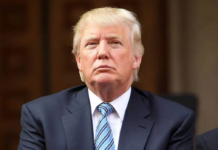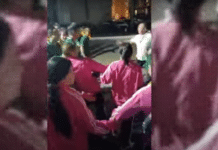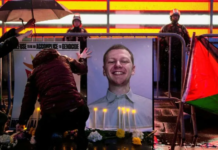Workers’ organisations must ensure real change
Keith Dickinson, Socialist Party (CWI, England and Wales)
The National League for Democracy, has overwhelmingly won the last two elections in Burma that it has fought. The first was in 1990 when it won on a national scale – the general election of that year. The party was prevented from taking office by the military junta. Most of the NLD activists were imprisoned, many tortured and some executed. Now, this year, the generals deliberately created bye-elections in 45 parliamentary seats held on April 1st. The NLD won all except one, giving them 44 Members of Parliament out of a total of 664. Among them, with huge crowds lining the roads welcoming her back into politics, is Aung San Suu Kyi, the party’s famous leader.
So why have the generals allowed elections? Undoubtedly, the “Arab Spring” last year will have reminded them of the huge August 1988 uprising, when the Burmese workers and peasants came near to ousting them. All that was lacking was national coordination of the local ad-hoc organisations which had sprung up everywhere and were moving for an insurrectionary general strike. The Western capitalist powers also fear a similar rising to what happened in the Arab countries – one which could spread throughout South East Asia. They have undoubtedly pressurised the Generals to introduce at least some modest democratic reforms.
Big business’ interest in ‘democracy’, of course, is always connected with assuring their profits. As well as buying off the generals, their representatives are already filling the hotels of Rangoon/Yangon and finding ways around the sanctions which Hilary Clinton of the US administration and British Foreign Minister, William Hague, are currently making a big issue of lifting. As one financier who has been investing in Burma for 15 years expressed it: “Burma’s economy is the next big story in Asia after China”.
Burma – or Myanmar as the generals renamed the country – represents in itself a market of 60 million people. But within a 700 mile radius of the second city, Mandalay, live a total 700 million people – one tenth of the world’s population. The Wall Street Journal says, “Myanmar’s potential is too great for some investors to ignore. One of the last, large frontier markets in Asia, it is rich in oil, gas, timber and gems and has the potential to be a major rice and seafood exporter”.
The Australian newspaper, the ‘Daily Reckoning’, points out that Burma constitutes “a natural crossroads. Already work has begun on a network of pipelines, highways and railways, all with Burma as the bridge to the two potentially biggest markets on earth, China and India”. It also offers China access to the Indian Ocean and the USA is trying to counter this influence already. It agreed with the Australian government the establishment of a new base near Darwin on the north coast, and the first troops moved in within months.
There are huge consequences for the Burmese people and internationally, as the world’s money-grubbing capitalists see the potential of “exploiting low labour costs to support manufacturing”. But the emphasis in the programme of Aung San Suu Kyi and the NLD has been only on the question of democratic reforms.
The parliamentary session opened on 23rd April, but the NLD has only 7% of the seats. The rest are taken up by the generals and their puppet party – the Union Solidarity Development Party (USDP). A few split-offs from the NLD have applied to rejoin them and other MPs may adjust their “loyalties” in the face of her huge popularity.
Despite some delay, due to her trying to get changes to the constitution, Suu Kyi and her NLD have eventually sworn loyalty to the generals’ constitution. Even some fierce rivals from the USDP see her presence as a boon to the image of the subservient parliament. However the army has responded to the NLD entry by replacing its own 25% quota of what were probably “Yes” men, with higher ranking officers who possibly have a few more words at their disposal. But the Secretary General of the “United Nations”, Ban Ki Moon, has rushed in to do his bit to make trade with the generals seem more respectable by speaking to the parliament. Outside, he and Suu Kyi are covering themselves by saying that the limited sanctions should be kept, and the lifting of sanctions on trade – undefined it seems – should be looked at in a year’s time.
While the generals themselves can be using Suu Kyi’s election as a democratic cover, the European Union has lifted travel bans on 80 officials of the regime. Also, the assets freeze on 500 Burmese leaders expired on 30th April.
Suu Kyi has long said she could work with the army and there is talk of her possibly joining their cabinet. It is not clear what the NLD’s economic programme is, except for a few indicators. Suu Kyi, it seems, consciously stood in a constituency south west of Rangoon which was still suffering from the effects of the recent devastating typhoon, in the hope that it would focus attention on their plight. It is estimated that one third of Burma’s population live on around 30p a day.
The leaders of the ’88 Generation Group, released from prison, are more cautious. They say, “We hope for a system change, not just a person change,” and the situation is “like a fish in a jar. It doesn’t matter if it is half full or half empty, what is important is, can it survive?”. What role these well known, now older, celebrated leaders play in the near future could be crucial.




